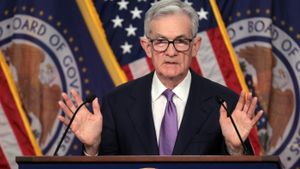With the Maharashtra assembly elections fast approaching, the political race is heating up, and both major parties—the ruling BJP-led MahaYuti and the opposition Maha Vikas Aghadi—are intensifying their campaign efforts. Prime Minister Narendra Modi is preparing for three significant rallies across the state, scheduled for Tuesday, where he will advocate for MahaYuti candidates. With the campaign deadline looming, Modi's visits are positioned as strategic efforts to rally support and bolster confidence among party cadres.
The prime minister's itinerary includes key locations: Chimur at 1 p.m., Solapur at 4:15 p.m., and Pune at 6:30 p.m. These cities are pivotal for the BJP’s ambitions, as they seek to reclaim ground traditionally dominated by Congress and the Nationalist Congress Party (NCP). Modi's campaign messaging has emphasized the need for consolidation among allies to counter the challenges posed by the opposition.
Specifically, Modi is directing his efforts toward the Vidarbha region, where the BJP has high stakes. Of the 76 direct contests against Congress, 36 will occur in Vidarbha, underscoring its significance. Recent Lok Sabha elections have exposed weaknesses for the MahaYuti alliance, which managed to win merely three out of ten parliamentary seats. Such figures have intensified the BJP's focus on regional issues among farmers and the OBC community.
During political gatherings, Modi did not shy away from delivering pointed critiques at Congress, accusing them of long-standing exploitation of Maharashtra’s residents, particularly farmers. "Congress has been the foundation for the deterioration of farmers' lives," Modi declared, reflecting on the party's historical governance record. The prime minister underscored his administration's commitment to resolving agricultural challenges, as his government has allocated financial assistance aimed at alleviating hardships faced by local farmers.
Echoing these sentiments, BJP National President J.P. Nadda also took the stage recently to accuse Congress of divisive politics and corruption. He declared, "While Congress used to shine brightly with promises of development, today they are illuminated only by allegations of bribery and dishonesty." Nadda’s speech included calls for accountability, aiming to appeal to disenchanted voters with promises of development,' strongly positioning the BJP's platform as focused on transparency and progress.
With the elections looming, both Modi and Nadda’s messaging pivot around the same core themes: development and unity. They seek to present the MahaYuti coalition as the bastion against Congress's alleged divisive tactics. Modi characterized their collective growth effort as foundational for creating opportunities and generational prosperity. The slogans echo through campaign trails as the prime minister emphasized: "If there is MahaYuti, there is progress."
Meanwhile, on the opposition side, Rahul Gandhi is working hard to counter the BJP's narratives. He addressed concerns over Modi's comments about the Congress's perceived lack of respect for the Constitution. At one rally, he challenged Modi directly, asserting, "This document is not empty; it embodies the visions of leaders like Birsa Munda, Mahatma Gandhi, and Ambedkar. Disrespecting it is disrespecting their legacy." Gandhi's speeches resonate with voters who may feel disenfranchised by the ruling party. He has positioned his party as the guardian of social justice and the rights of tribal communities, particularly with its proposed initiatives such as the caste census and varying financial aids for women and farmers.
While the scrutiny of social issues provides fodder for Gandhi's campaign, the BJP counters with assertive messaging around security, integrity, and economic competence. Modi's remarks often center around protecting resources from perceived threats, echoing sentiments around land, water, and livelihoods—framing the elections as not just politicking but as fundamental issues of identity and survival for many constituents.
Adding to the opposition’s challenges, Maharashtra's Chief Minister Eknath Shinde has lamented the past government’s failure to implement development policies effectively. He dubbed the previous Maha Vikas Aghadi government as a regressive force, claiming it set Maharashtra back by years. Shinde's government has sought to assure citizens, particularly those belonging to minority groups, of the ruling party's commitment to inclusive governance and welfare.
Both major parties are putting their best foot forward. The BJP is counting on PM Modi's charisma and well-crafted narratives to shore up support, emphasizing the successes of its governance model over the past decade. Conversely, the Maha Vikas Aghadi seeks to galvanize support by ensuring voters are reminded of the BJP’s earlier failures, channeling frustration toward actionable change. The stakes are high, and every speech, rally, and interaction on the ground feels pivotal, setting the stage for what could be one of the most contested elections Maharashtra has seen.
The upcoming weeks promise to be even more electrifying as both camps ramp up their ground games. Each party is focused on not just winning the vote but shaping the very future of Maharashtra's political and social fabric.



